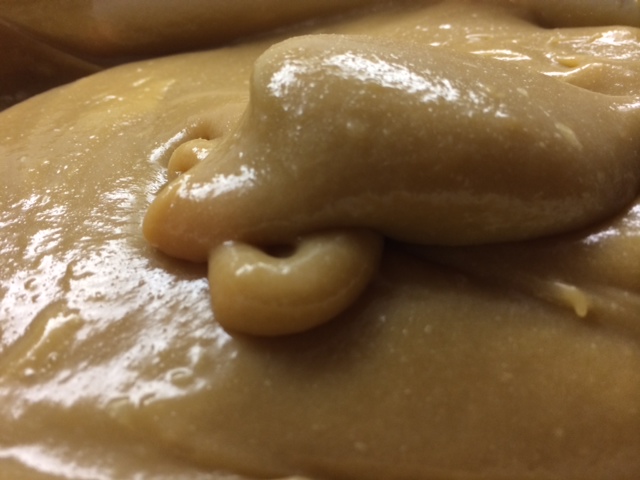In general we have avoided processed gluten, dairy and corn free foods that contain additives. That said like most people we have ended up consuming a few things that contain zinc oxide or titanium dioxide (non toxic white paint), a lot of natural flavors (which is its own blog post) and then the controversial carrageenan. I wasn’t too worried about carrageenan…until now.
See as it turns out, just like when they want obese rats they feed the rats MSG and bingo, morbidly obese rats. So I no longer eat MSG because if I am going to get morbidly obese, I plan to use chocolate. Well just like MSG is the standard for making rats fat, when they need to test an anti-inflammatory agent, they induce inflammation in the rats with carrageenan.
No seriously, the following study is not all that relevant, but read the part where when they wanted the rat paw to swell up they just used carrageenan.
http://www.ncbi.nlm.nih.gov/pubmed/24190755
Here they inflamed his little prostate
http://www.ncbi.nlm.nih.gov/pubmed/24256126
As a matter of fact when you put carrageenan into the PubMed database as a search term, you get a bunch of hits for drugs that reduce inflammation which were all tested and shown to reduce inflammation in mice and rats which were treated with or fed carrageenan.
Now what follows is a full paper but just read the introduction. When they feed rats carrageenan they give the rats colitis. Wow. The paper isn’t even on that topic. Its on a different one but it just casually discusses how even low doses cause impaired insulin resistance and spike diabetes risk.
http://www.ncbi.nlm.nih.gov/pmc/articles/PMC3677668/
He doesn’t mention cancer, but really why bother since we have known it gives the rats cancer for a while
http://www.ncbi.nlm.nih.gov/pubmed/11675262/
like since 1981
http://www.ncbi.nlm.nih.gov/pubmed/7349769
And I am not being selective here. Do your own searches on carrageenan on PubMed. Its really disturbing. Sometimes I ignore what I see as poor or incomplete studies, but no, there is no need because all the studies show inflammation all the time. It’s so predictable that this is what they feed the rats when they need them to be sick. Its like arsenic, in that no one is researching whether or not arsenic is a problem because the work is done. Arsenic is bad for you, always, all the time, even in tiny doses, no matter what. Carrageenan appears to be in a similar category.
So exactly why would I want to eat something that they feed to rats when they need them all diabetic, inflamed, cancer laden and to get colitis. Oh right, I wouldn’t.
It gets even weirder. As it turns out they are working on a gel that when applied to sensitive areas can prevent the transmission of STDs because its a potent microbicide. Guess what the active ingredient in this microbicide is.
http://www.ncbi.nlm.nih.gov/pubmed/22155903
Yup, its carrageenan. Wow, anyone else think that something this toxic to germs might not be the best thing to feed gut flora?
So anyway I am now boycotting any products that use the stuff and avoiding any companies that use it. We have known its a problem since 1981 and guar gum and xanthan gum, while not perfect, are not the gold standard for causing inflammation either. As a matter of fact xanthan gum safety pulls up practically no results in PubMed. Any company that purposely puts arsenic in the food (chicken farmers I am talking to you) does not deserve my trust, and neither does a company that uses carrageenan.
So if you want to read more on the topic, poke around PubMed. If this is enough for you, look very closely at your non-dairy milks, ice creams, breads and other desserts.
And get some xanthan gum.



Debbie, thank you for that reference to the FDA decision. While I agree that Dr. Tobacman may not have effectively made her case, it appeared only that the FDA felt that her evidence, being based on animal models and in vitro cells, was insufficient to ban an ingredient so widely used. Since the FDA has not decided that ractopamine, which is banned in places like India and Russia is unsafe, nor have they banned Red #40, I think that they tend to be a bit slow to ban food additives.
Since people who cannot consume dairy, like myself, drink a lot of milks, fake cheeses, and ice “creams” thickened with carrageenan, and since there are safer alternatives, I still recommend that people avoid the stuff. That study that the FDA quoted as showing safety was another rat model with its own flaws. The rats were fed no new carrageenan, and the gut flora came from four year old humans with no bowel disease, so it is hard to imagine that they had compromised flora or that they had eaten the carrageenan for more than a year.
My readers are consuming up to three servings a day, every day, for years, of products containing a lot of carrageenan (coffee creamer, milk in cereal, and a fake cheese on pizza) and generally have questionable gut flora and compromised intestines. Show me a study that is relevant to them. Show me a long term high dose, in vivo study of humans with gut flora issues and you can change my mind.
SO MUCH FOR THE MYTHS
CONSIDER THE FACTS ON CARRAGEENAN FOR A CHANGE
Q. What is Carrageenan??
A. Carrageenan is a naturally-occurring seaweed extract. It is widely used in foods and non-foods to improve texture and stability. Common uses include meat and poultry, dairy products, canned pet food, cosmetics and toothpaste.
Q. Why the controversy?
A. Self-appointed consumer watchdogs have produced numerous web pages filled with words condemning carrageenan as an unsafe food additive for human consumption. However, in 70+ years of carrageenan being used in processed foods, not a single substantiated claim of an acute or chronic disease has been reported as arising from carrageenan consumption. On a more science-based footing, food regulatory agencies in the US, the EU, and in the UN’s Food and Agriculture Organization/World Health Organization (FAO/WHO) repeatedly review and continue to approve carrageenan as a safe food additive.
Q. What has led up to this misrepresentation of the safety of an important food stabilizer, gelling agent and thickener?
A. It clearly has to be attributed to the research of Dr. Joanne Tobacman, an Associate Prof at the University of Illinois in Chicago. She and a group of molecular biologists have accused carrageenan of being a potential inflammatory agent as a conclusion from laboratory experiments with cells of the digestive tract. It requires a lot of unproven assumptions to even suggest that consumption of carrageenan in the human diet causes inflammatory diseases of the digestive tract. The objectivity of the Chicago research is also flawed by the fact that Dr Tobacman has tried to have carrageenan declared an unsafe food additive on weak technical arguments that she broadcast widely a decade before the University of Chicago research began.
Q. What brings poligeenan into a discussion of carrageenan?
A. Poligeenan (“degraded carrageenan” in pre-1988 scientific and regulatory publications) is a possible carcinogen to humans; carrageenan is not. The only relationship between carrageenan and poligeenan is that the former is the starting material to make the latter. Poligeenan is not a component of carrageenan and cannot be produced in the digestive tract from carrageenan-containing foods.
Q. What are the differences between poligeenan and carrageenan?
A. The production process for poligeenan requires treating carrageenan with strong acid at high temp (about that of boiling water) for 6 hours or more. These severe processing conditions convert the long chains of carrageenan to much shorter ones: ten to one hundred times shorter. In scientific terms the molecular weight of poligeenan is 10,000 to 20,000; whereas that of carrageenan is 200,000 to 800,000. Concern has been raised about the amount of material in carrageenan with molecular weight less than 50,000. The actual amount (well under 1%) cannot even be detected accurately with current technology. Certainly it presents no threat to human health.
Q. What is the importance of these molecular weight differences?
A. Poligeenan contains a fraction of material low enough in molecular weight that it can penetrate the walls of the digestive tract and enter the blood stream. The molecular weight of carrageenan is high enough that this penetration is impossible. Animal feeding studies starting in the 1960s have demonstrated that once the low molecular weight fraction of poligeenan enters the blood stream in large enough amounts, pre-cancerous lesions begin to form. These lesions are not observed in animals fed with a food containing carrageenan.
Q. Does carrageenan get absorbed in the digestive track?
A. Carrageenan passes through the digestive system intact, much like food fiber. In fact, carrageenan is a combination of soluble and insoluble nutritional fiber, though its use level in foods is so low as not to be a significant source of fiber in the diet.
Summary
Carrageenan has been proven completely safe for consumption. Poligeenan is not a component of carrageenan.
Closing Remarks
The consumer watchdogs with their blogs and websites would do far more service to consumers by researching their sources and present only what can be substantiated by good science. Unfortunately we are in an era of media frenzy that rewards controversy.
Additional information available:
On June 11th, 2008, Dr. Joanne Tobacman petitioned the FDA to revoke the current regulations permitting use of carrageenan as a food additive.
On June 11th, 2012 the FDA denied her petition, categorically addressing and ultimately dismissing all of her claims; their rebuttal supported by the results of several in-depth, scientific studies.
If you would like to read the full petition and FDA response, they can be accessed at http://www.regulations.gov/#!searchResults;rpp=25;po=0;s=FDA-2008-P-0347
NOTE: Debbie aka Debbie Young is copying and pasting carrageenan talking points straight from an FAQ on Ingredient Solutions Inc, the world’s LARGEST carrageenan supplier, and she is also listed as as author with them, FYI. She shows up all over the net on any blog or news site that dares to call carrageenan into question. Gee. I can’t imagine why…
Here’s Debbie on Dr. Deegan’s site: “Yes, I am associated with Ingredients Solutions, Inc., and I am proud to be a part of the ISI family. Being part of ISI I am in a unique position to see first hand that carrageenan is a safe ingredient that actually provides manufacturers with options to reduce the sodium and fat content in their products which in turn makes them healthier to consumers. It is also used in many vegan applications as well as providing kosher options. I know there are a lot of studies that put carrageenan in a bad light but what most people don’t understand is that those studies are not performed in a way that would replicate carrageenan in the human diet. So yes, I work for the World’s Largest Independent Supplier of Carrageenan and I eat foods every day that contain carrageenan.”
Ok, now I really must start making my own almond milk 😛
Monica.
It is possible to find milks without carrageenan. Trader Joe’s has an organic soy unsweetened that is just soy and milk and even Silk Almond milk does not contain carrageenan. That said, I spent a LONG time looking at milks yesterday and rejecting quite a few that I had been drinking previously. I am just not industrious enough to make my own milk.